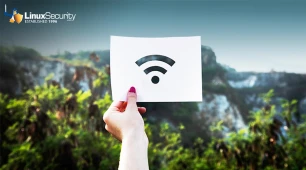1 - 2 min read
Oct 16, 2001
As an IT security professional Neil Barrett welcomes moves to record online activity, but as a private citizen he doubts that increased online surveillance is healthy So, the terrorists who hijacked the planes and caused heart- and commerce-stopping panic used email, . . .
As an IT security professional Neil Barrett welcomes moves to record online activity, but as a private citizen he doubts that increased online surveillance is healthy So, the terrorists who hijacked the planes and caused heart- and commerce-stopping panic used email, encryption, steganography and the rest, did they? And because of this, the FBI and police forces are re-opening the painful debates about retention and release of Internet content and traffic data, the extensive interception of email, and the release of information on users.
Well, even if the terrorists didn't use the latest in online technology, the existence of the terrorists and the fact that they might have used these things can be used as an argument for greater powers to delve into Internet traffic and computer-held information. In a way this is understandable. Civil liberties, human rights and privacy inevitably obstruct police investigations let alone the waging of a war. And they are, of course, used by terrorists, dictators and others to hide behind.
The link for this article located at ZDNet UK is no longer available.

















